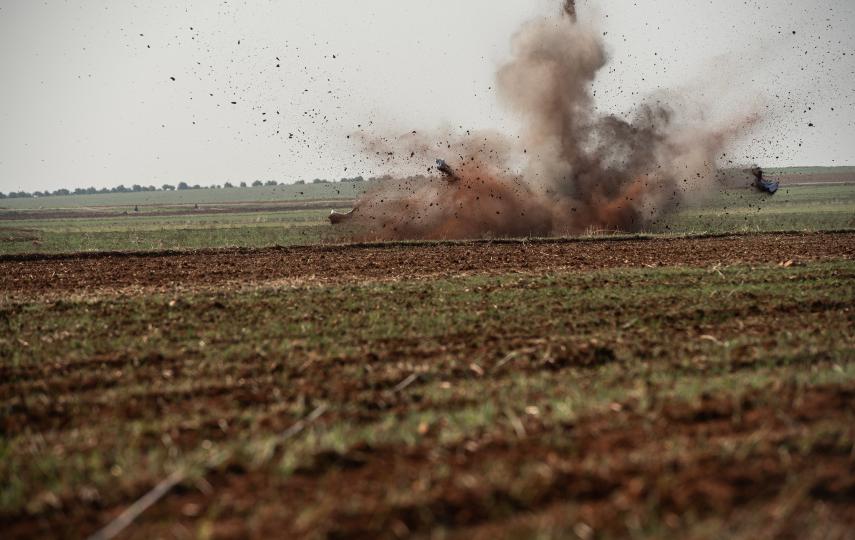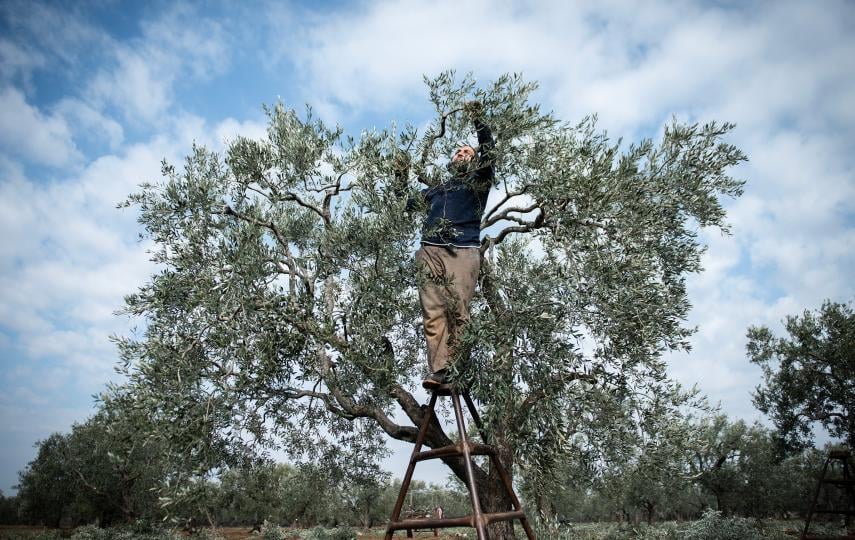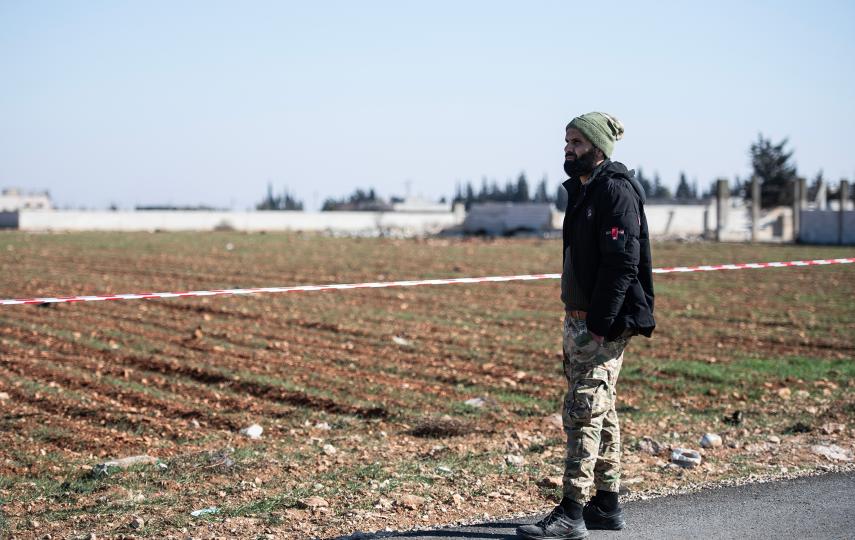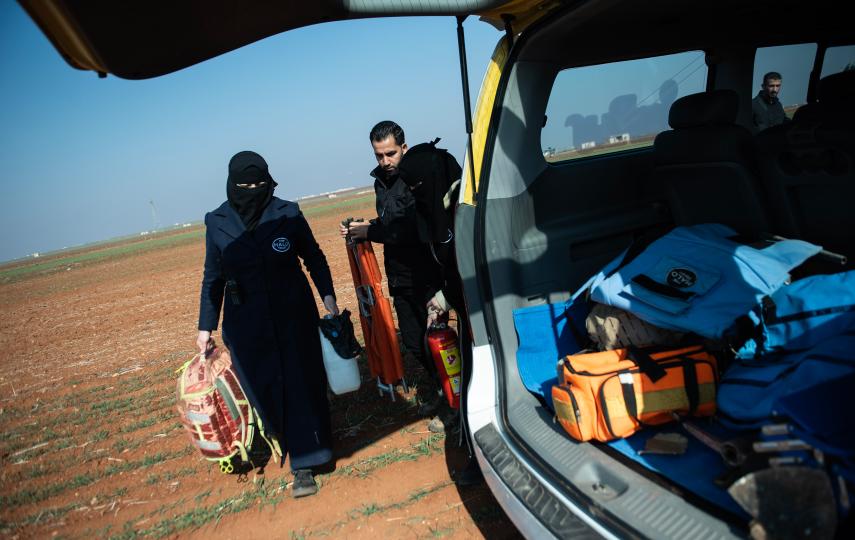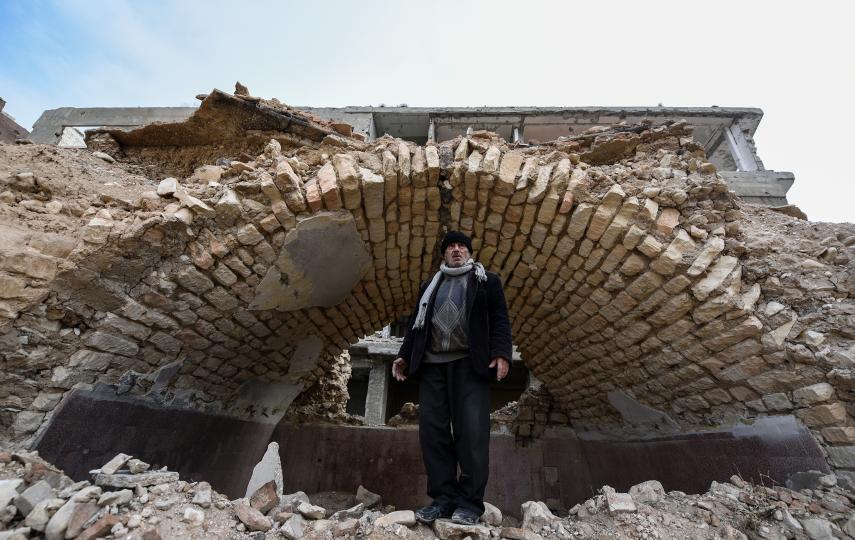On the day that former Syrian President Bashar al-Assad fell, Ammar Zamzam drove across the country, across former frontlines, to see his parents for the first time in years. But after just a few days together last December, he left them to get back to his duties as a de-miner.
Zamzam, who is in his thirties, first joined the Syria Civil Defence (better known as the White Helmets) as a search and rescue worker in 2016, in his hometown of Zamalka, in the Damascus suburb of Eastern Ghouta. At the time, al-Assad’s forces were bombarding the town, and had placed it under a harsh siege.
Two years later he was forced to evacuate the town along with other rebel fighters and civilians, while his parents stayed behind. He ended up in the northwest province of Idlib, which was held by rebels and over the course of Syria’s war became host to millions of displaced people like him.
Zamzam continued his work in search and rescue in the northwest, and in 2022 joined one of the White Helmets demining teams, taking up a job he feels is so crucial that he only spent a short time with his family before getting back to work. “It’s a great job that protects civilians, especially children,” Zamzam explains, on the side of a site marked for mine clearance in a suburb of Homs.
Zamzam has been through a lot in his relatively short career: He recalls pulling people out of bombed homes in Eastern Ghouta, and working through days and nights to try to recover bodies after the February 2023 earthquakes that killed more than 55,000 people across southern Türkiye and northern Syria.
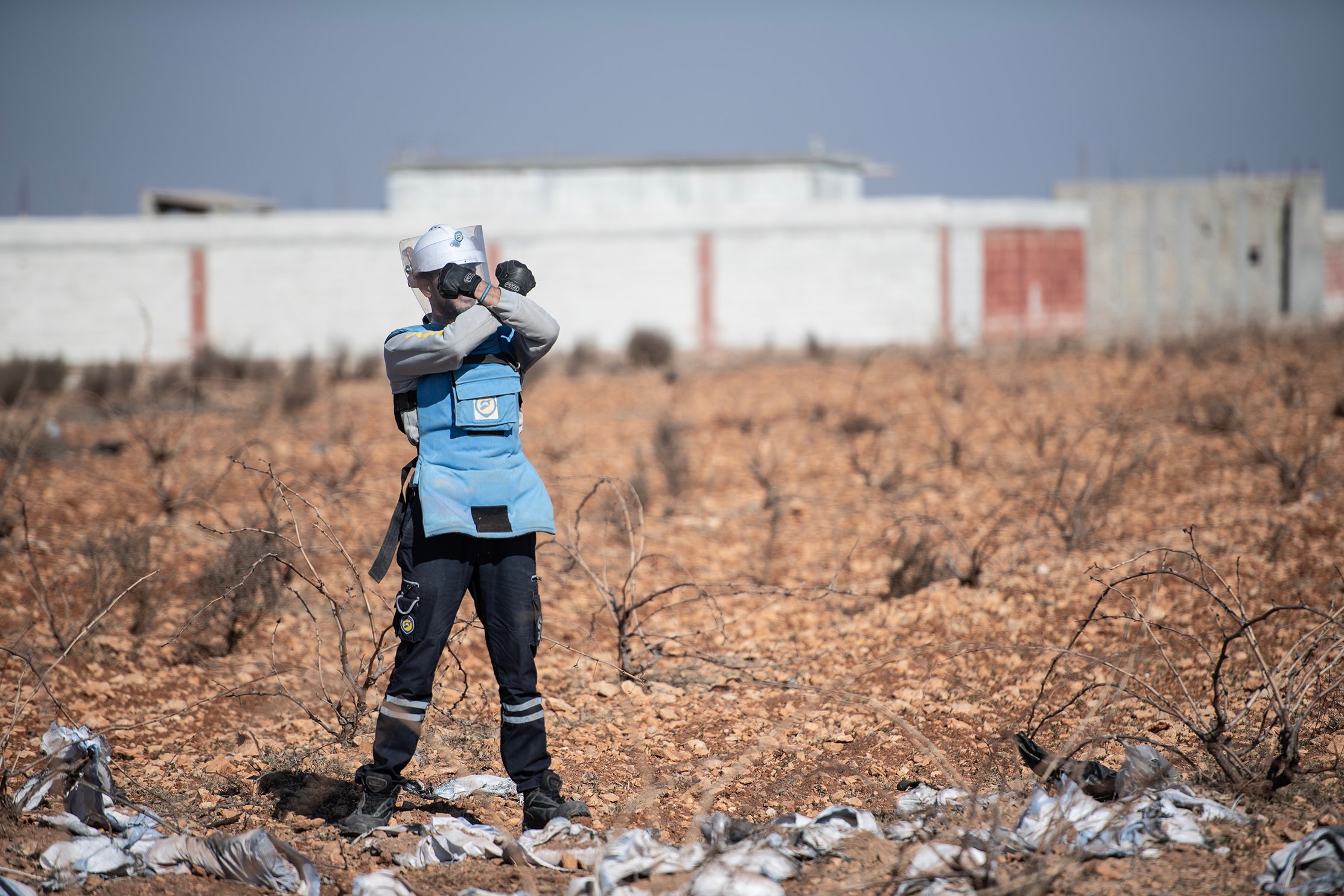
His current job isn’t as physically or emotionally exhausting as search and rescue, but it is dangerous and crucial. “We can see how important demining is right now. There are new casualties on a daily basis, especially amongst children who think munitions are toys that they can pick up and play with.”
As he walks carefully in a field with his colleagues, they mark the locations of cluster bomblets, then prepare for clearance. He points to one of the spots that has been marked. “The Syrian army laid mines on many frontlines, and spread cluster munitions too. Now as these places are gradually being repopulated, there is a delayed threat of death and destruction. They can stay dormant for more than 20 years, then suddenly explode.”
His job requires concentration. “We need to be careful, because our first mistake could be our last,” he says. But for Zamzam, it’s worth the risk and the time away from his family.
Zamzam gets satisfaction from eliminating just one unexploded ordinance. “I know I’m protecting a child who is playing, or an elderly woman, or a man headed to work.”
He expects to be working at this for years, given the likely scale of Syria’s problem. But he doesn’t despair. “We are working hard. We are tired. I’m away from my family and children a lot, but I am doing something important, and giving hope back to people.”
Edited by Annie Slemrod.

